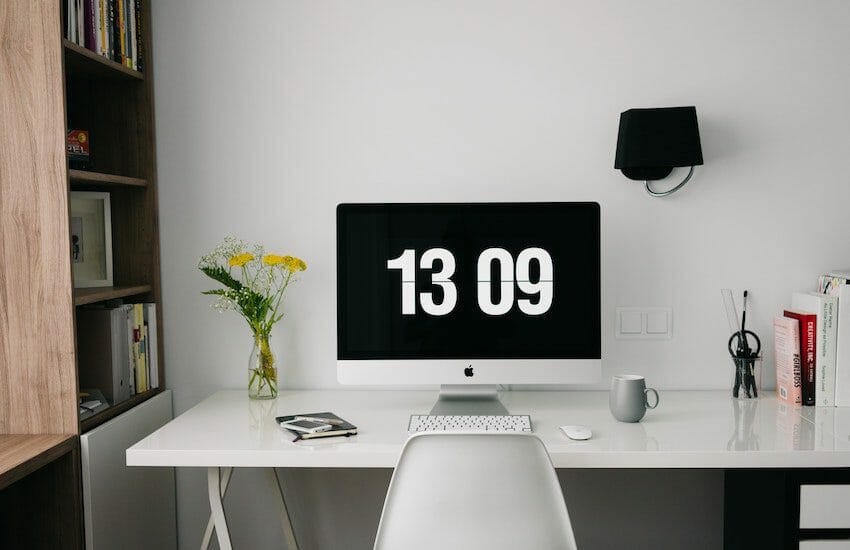A study room is where you read, work, study, or undertake any task that requires maximum concentration and brain work. Indeed, a dedicated study space can help you escape distractions that can make your learning time more difficult. Likewise, you can take a break from noise to destress and declutter your mind. And to achieve these, your study room has to be organized. Here are some beneficial tips for organizing the ideal study room to increase your productivity.

-
Clean and declutter your space
The best-designed study room can still have its functions reduced by excessive clutter. Research indicates that the brain prioritizes order, and visual reminders of clutter and disorganization can drain the cognitive resources and reduce your ability to focus. Moreover, a cluttered space can increase depression, anxiety, and stress levels, things that would hinder you from studying effectively. Therefore, if you haven’t already, you want to declutter your study room. It’s easy for your study to become the dumping place for old paperwork and other odd items. So, you can begin by taking stuff out that doesn’t belong there and sort out your paperwork. As a tip, divide these documents into three categories: shred, keep, and action.
As the name states, documents in the shred category are those you no longer need, and eliminating them can help bring some order to your study room. Consequently, place the keep category in a neat pile on your desk or in your cabinet, and work on the action category to determine if you can eliminate them afterward. It’s also prudent to clean your cabinets to allow room to store the essential paperwork. Likewise, clean your study space, and don’t forget your windows, furniture, books, computer, etc. When rearranging, ensure that you place each item where it belongs to achieve the best results.
-
Organize your books neatly
The last thing you may want is to look for a book by sorting out many others. Not only would you feel frustrated, but you would have wasted time. So, it makes sense to arrange your books orderly to avoid this. Also, it’s easier to determine which books you’ve read and those you haven’t while freeing up space on your study table and enhancing your study room’s appeal. This, in turn, can lead to a more productive reading or study session. When arranging your books, you’ll find it helpful to separate your paperbacks and hardcovers for a more streamlined and visually appealing feel. Likewise, consider arranging your books by color, especially if you associate genres or stories by their covers. As a tip, get creative by trying an ombre pattern, a rainbow looks, or stacking your books. You can also arrange them by genre, so keep this in mind.
It’s likelier to run out of desk space as your book collection increases. In this case, you’ll find it helpful to invest in a bookcase. However, modern options like the custom shelving system will work well if you don’t have enough room for a bookcase. Consequently, leveraging a basket for book storage is another great idea, so feel free to consider it. Experts also advise arranging your books alphabetically by the author’s last name and placing larger books at the bottom and smaller books on top to achieve the best results.

-
Arrange your desk
Having an organized desk is beneficial for many reasons. For starters, it’s easier to concentrate on your studies or tasks and become productive when you don’t have to struggle with the mess on your desk. Likewise, you can quickly comprehend whatever you’re learning, saving time to focus on other activities. The first step to arranging your desk is to remove all items and clean your desk thoroughly. This way, you can eliminate dust and other pathogens that compromise your health. Consequently, store items you aren’t using presently in easy-to-use drawers, separating them accordingly. For example, you can store your chargers, USB cords, hard drives, and other computer accessories in one drawer and pens and other stationery in another.
You can also consider using a pen holder to keep your pens, markers, pencils, erasers, and paper clips to prevent them from getting missing. However, consider storing paper pens in a separate holder to prevent injuries. As a tip, place a trash can close by to help dispose of unwanted items instead of keeping them on your desk. You can liven your desk by including a framed picture or artwork. However, avoid going overboard as it may cause distractions.
Organizing your study room can increase productivity and make learning more pleasurable. Hopefully, you’ll utilize these organization tips for the best results.
Want a modern home on a budget?
Subscribe and get this FREE GUIDE to learn the tips, tricks, and my best resources to create a family-friendly modern home on a budget!


